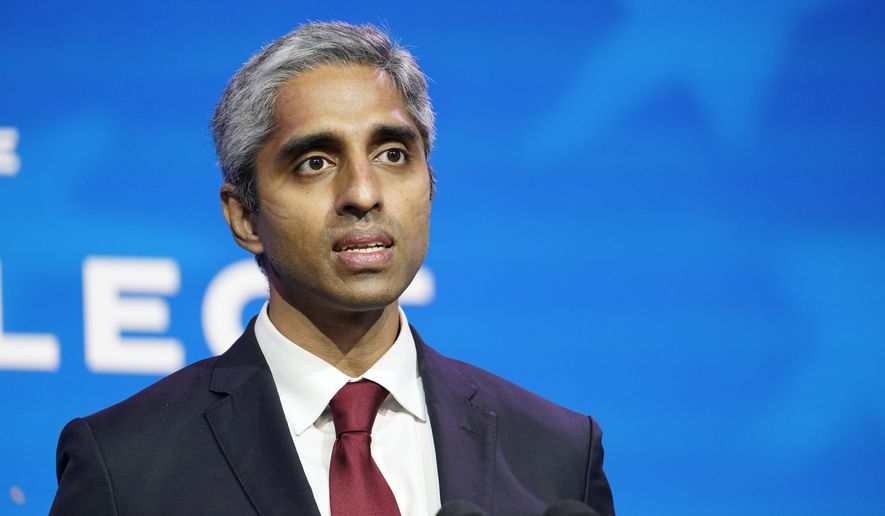U.S. Surgeon General Vivek Murthy pleaded Thursday with social media companies and everyday Americans to combat bogus information about COVID-19 vaccines, declaring misinformation about the shots an “imminent and insidious” threat to the nation’s health.
As the push to vaccinate the U.S. stalls, Dr. Murthy pointed to research showing two-thirds of unvaccinated adults had heard a vaccine myth and believed it to be true or weren’t sure what to think.
False stories about vaccines are more likely to spread online than true ones and bad information around the shots is dividing families, he said, putting the country short of the immunity levels it needs to stiff-arm the virus, he said.
Less than half — 48% — of the U.S. population is fully vaccinated and there are wide disparities in vaccination rates from state to state, allowing the delta variant to take hold and fill hospitals in pockets of the country.
“Health misinformation has cost us lives,” Dr. Murthy told White House reporters.
The Biden administration is worried that fears around infertility and other misplaced concerns are holding back the nationwide push to outrace the virus.
Dr. Murthy, in his first formal warning of the Biden administration, urges families to intervene with empathy if a relative is using untrustworthy sources to learn about the vaccines.
“Listen with empathy, establish common ground, ask questions, provide alternative explanations and sources of information, stay calm, and don’t expect success from one conversation,” the advisory says.
Educators should teach students how to identify unqualified people who pose as experts online, while hospitals and doctors can dispatch their experts into the community as trusted voices on vaccines.
Social media companies should configure their algorithms to make sure misinformation isn’t amplified and build in “frictions” — warnings, essentially — to reduce its spread, while hiring multilingual teams to monitor for bad information on their platforms.
White House press secretary Jen Psaki said Facebook and other companies should configure their platforms so that accurate information is given more prominence than false information.
The Murthy advisory prods journalists to examine the scientific evidence so they don’t skew debates.
“If evidence is not equally strong on all sides of an issue, avoid presenting it as such,” the advisory says.
Health misinformation isn’t a new phenomenon. Myths have held back the HIV/AIDS fight for years, and politically charged falsehoods swirled when Ebola broke out in West Africa in 2014.
But “in recent years it has spread at unprecedented speed and scale, especially online,” the advisory says.
Dr. Murthy said some of the people who spread inaccurate information think they are being helpful but don’t realize their sources are shoddy.
“If you’re not sure, don’t share it,” he said.
Dr. Murthy said the fight is personal — he’s lost 10 family members to the disease and wishes “every day” that they could have been vaccinated before they got sick.
• Tom Howell Jr. can be reached at thowell@washingtontimes.com.




Please read our comment policy before commenting.